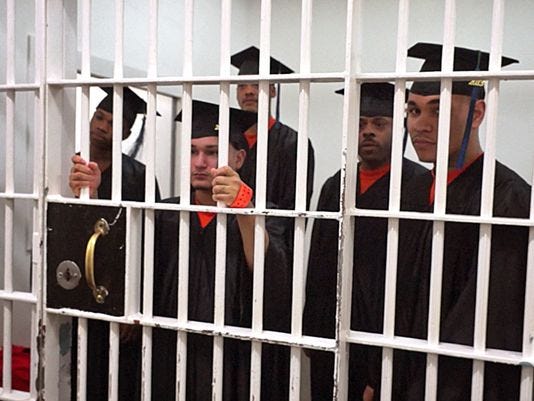College ain’t what it used to be. Supposedly because of a virus that for most college students is less of a threat to their lives than riding in a car, students at college campuses this fall will be subjected to dystopian controls from required mask wearing and “social distancing” to surveillance via contact tracing and health monitoring.
Many prospective and set to return students will see this as an undesirable situation. College enrollment in America has been dropping over the last ten or so years. Make college dreary enough and there can be a big additional drop as this year’s fall semester begins.
For an example of the kind of restrictions and surveillance being imposed on students at many university campuses, consider these requirements in the Duke Compact that Duke University is imposing and even wants all students to sign:
To comply with requirements from Duke University, and state and local authorities, I will:
Yikes.
Making it clear that these requirements are not just advisory or aspirational statements, the Frequently Asked Questions (FAQ) section following the Duke Compact includes these entries:
What are the consequences for violating terms of the Duke Compact?
While some minor violations will result in reminders and educational engagement, other flagrant and repeated violations may result in restricting your access to Duke facilities, employment actions or removal from campus. Consult your student, faculty or staff handbooks for further information.
….Can I still be enrolled as a student, even if I don’t sign the Duke Compact?
We expect all members of the Duke community to be united in protecting ourselves, each other and the community that depends upon us. A signature is required to have access to the campus, and, based on the expectations and requirements of your academic field, refusal to sign and comply with the provisions may impact your student status.
Further, while one may see ambiguity in portions of the Duke Compact that leaves room for some freedom and privacy, the FAQ shuts much of this down. Here are some examples. The “public spaces” where a mask must be worn is an expansive area including everywhere on campus except where a person is “alone in a confined room such as an office or dorm room,” “alone in a vehicle, if the vehicle is not regularly shared with others,” eating or drinking “while following safety guidance,” or in “open outdoor areas where social distancing is easily maintained and areas where individuals are not likely to pass in close proximity.” The requirement to report symptoms is a requirement to do so daily; fail to do so and “your access to buildings may be temporarily suspended, or revoked.” The “large gatherings” that must be avoided can include gatherings of as few as 11 people. The requirement to participate in “required COVID-19 testing” includes being tested “upon arrival” at the Duke campus as well as potentially anytime “based on symptom reporting, contact tracing information or as part of periodic sample testing of our residential population.” Adhering to “all travel conditions and restrictions” means students “living in Duke-provided residences” are not to travel beyond the city of Durham “for the duration of the semester” unless doing so is “necessary” and the student receives permission from Duke University, takes “reasonable precautions,” and follows “Student Health instructions upon return.” “Institutional data” that may be used in contact tracing include “symptom monitoring survey responses, door control access points, wi-fi access points, geofence technologies, housing assignments and class schedules.”
In addition to all the restrictions and surveillance imposed directly on students by Duke University, the FAQ indicates Duke may also go after students for failure to comply, even when the students are not on campus, with whatever coronavirus mandates may be imposed by the state and local governments. From the FAQ: “Duke expects all members of our community to adhere to state/local public health orders both on- and off- campus.”
Other universities are similarly using “compacts” and other sorts of edicts to weigh students down with many new rules in the name of countering coronavirus.
It used to be that going to college was an opportunity to escape from strict rules imposed by parents, gain more privacy, take new risks, and learn the self-responsibility helpful for adulthood. Now, many more students reading college requirements like those in the Duke Compact will see college as more restrictive and stifling than mom and dad.
Since the second half of the last century, attending college after high school has been for a large portion of the American population the default course. The imposing of over-the-top dictates like those in the Duke Compact challenges that situation. Confronted with such dictates, a significant number of potential freshmen, as well as of set to return students, will have a “Why bother?” epiphany.
There are options besides college. Make college grim enough in the name of countering coronavirus and many more people will choose to engage in those other options instead.
Duke University itself may not suffer much in reduced enrollment, though it could see a big change in the makeup of its student body. Duke is one of the selective universities that rejects many applicants. It can, to maintain enrollment numbers, start admitting students it previously would have rejected.
Less selective universities will really face trouble due to fewer people choosing to pursue higher education. Some of these universities can be expected to disappear as they become economically unviable.


